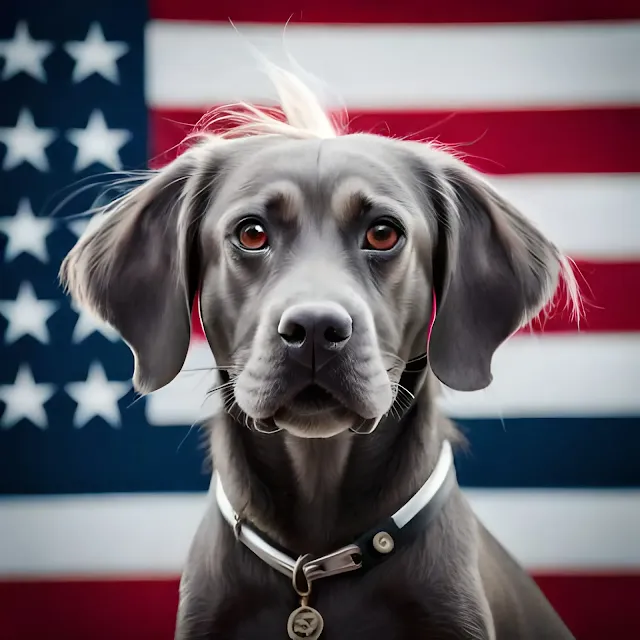Meet the World's Ugliest Dog.

Pabst The Ugly Dog Wins World's Ugliest Dog Contest
Additionally, what some may view as "ugly" physical characteristics can serve a purpose or have functional value. For example, the loose skin and wrinkles on a Bulldog's face help protect against bites during fights, and the Pug's distinct facial folds were originally bred to prevent dust and debris from entering their eyes. These unique features are part of what makes these breeds special and should be appreciated for their functionality rather than judged solely on aesthetics. Ultimately, beauty is in the eye of the beholder, and it's important to focus on the personality, temperament, and overall health and well-being of a dog rather than solely on its physical appearance. Every dog, regardless of their breed or physical attributes, has the potential to be a loving and loyal companion.
It is crucial to prioritize a dog's well-being and character over its physical appearance. Each dog, regardless of its breed or physical characteristics, can provide love and loyalty as a companion. The functionality and purpose behind certain physical traits should be appreciated instead of solely judging a dog based on aesthetics.
While the physical beauty of a dog might initially catch our attention, it is important to remember that a dog's well-being and character should be prioritized above all else. Dogs have been domesticated for thousands of years and have developed an incredible capacity to form deep bonds with humans. Their loyalty and love are not dependent on their appearance. Every dog, regardless of its breed or physical characteristics, has the potential to be a loving and devoted companion. Their ability to provide companionship, emotional support, and even assistance in various tasks goes beyond their physical appearance. Their loyalty and dedication to their owners are not influenced by whether they conform to a certain aesthetic standard. Physical traits are often linked to a breed's functionality and purpose. For example, a German Shepherd's strong and agile body allows them to excel as guard dogs, while a Border Collie's intelligence and agility make them perfect for herding livestock. These traits should not be overlooked or undervalued in favor of physical beauty. When we focus solely on a dog's physical appearance, we risk perpetuating harmful breeding practices such as the prioritization of certain physical traits over the dog's overall health and well-being. Breeding for aesthetics can lead to serious health issues and reduce a dog's lifespan. By valuing a dog's character and well-being over its physical appearance, we can promote responsible breeding practices and ensure that dogs are healthy and thriving. In conclusion, it is crucial to prioritize a dog's well-being and character over its physical appearance. Every dog can provide love, loyalty, and companionship, regardless of its breed or physical characteristics. The functionality and purpose behind certain physical traits should be appreciated and valued, rather than judging a dog solely based on its aesthetics. By doing so, we can ensure the happiness and well-being of our furry companions.
It is important to remember that a dog's physical appearance does not determine its worth or value as a pet. Instead, focusing on a dog's well-being and character can lead to a more fulfilling and meaningful relationship. Furthermore, judging dogs based on their aesthetics can perpetuate harmful stereotypes and contribute to breed discrimination. Breeds that may have been unfairly stigmatized due to their appearance, such as pit bulls, can be just as loving and loyal as any other breed. By prioritizing a dog's well-being and character over its physical appearance, we can create a more inclusive and compassionate environment for all dogs. This means providing proper care, training, and attention to ensure their happiness and overall quality of life. In conclusion, a dog's well-being and character should always be the focus, rather than its physical appearance. Regardless of breed or physical traits, every dog has the potential to provide love, companionship, and loyalty. By appreciating and valuing their functionality and purpose, we create a better world for our furry friends.
Overall, it is crucial to remember that outward appearances do not define a dog's worth or value as a pet. By emphasizing a dog's well-being and character, we can forge deeper connections and combat harmful stereotypes. Ultimately, by valuing a dog's functionality and purpose, we create a more inclusive and compassionate world for all pets.
In today's society, there is often a focus on the physical attributes of a dog when determining its worth or desirability as a pet. Certain breeds are considered "fashionable" or "trendy," while others may be overlooked or even stigmatized due to their appearance. This superficial attitude not only perpetuates harmful stereotypes but also fails to recognize the true value and potential of every individual dog. First and foremost, a dog's well-being should be prioritized. It is essential to look beyond their outer appearance and consider factors such as their health, temperament, and overall happiness. Dogs of any breed or mix can be wonderful companions and provide unconditional love and loyalty. Instead of focusing on conformity to breed standards or popular aesthetics, we should value a dog's individuality and unique personality. Character is another vital aspect to evaluate when determining a dog's worth. Each dog has a distinct set of characteristics, such as intelligence, trainability, sociability, and affection. These traits should be acknowledged and appreciated, as they greatly influence a dog's suitability as a pet. By recognizing and emphasizing character traits, we can form deeper connections with our dogs and better understand their needs and desires. Moreover, it is essential to combat harmful stereotypes that are often associated with certain breeds or appearances. Breed-specific legislation and breed discrimination unfairly stigmatize dogs based solely on their outward appearance, leading to a biased perception and unjust treatment of these animals. These stereotypes can hinder adoption rates, limit housing options, and even result in the euthanasia of perfectly healthy and well-behaved dogs. By challenging these stereotypes and promoting education and positive experiences with diverse dog breeds, we can create a more inclusive and fair society for all dogs. Ultimately, a dog's worth should not be determined by its physical appearance, but rather by its overall well-being, character, and ability to form meaningful connections with humans. By valuing a dog's functionality and purpose, regardless of its breed or appearance, we can break free from narrow-minded perceptions and create a more compassionate and inclusive world for all pets.


